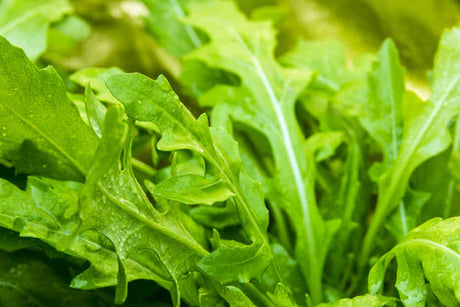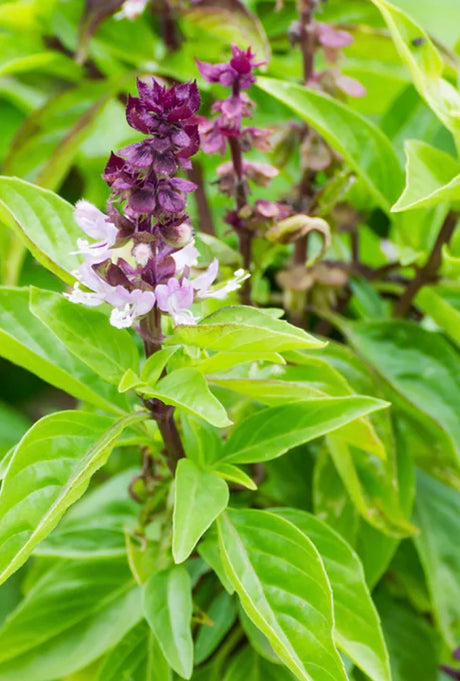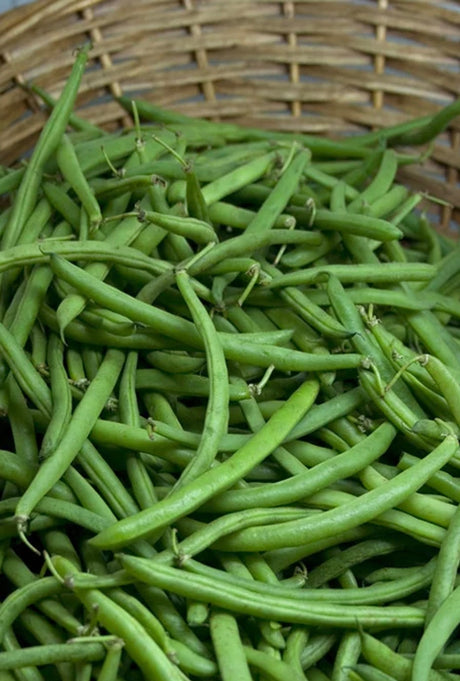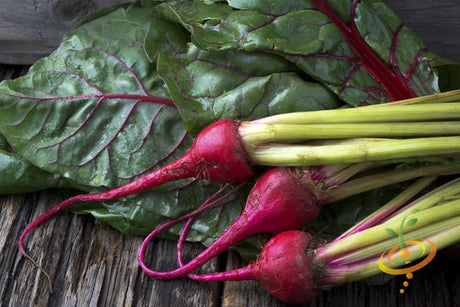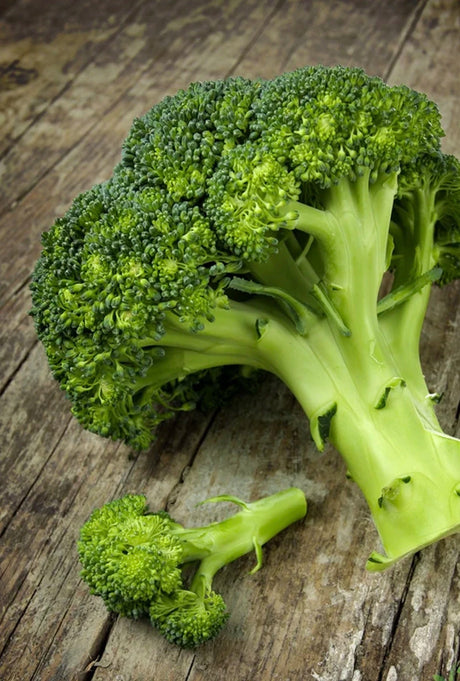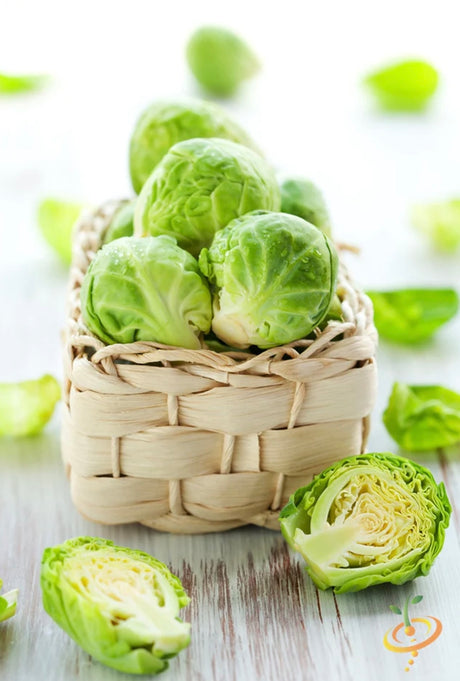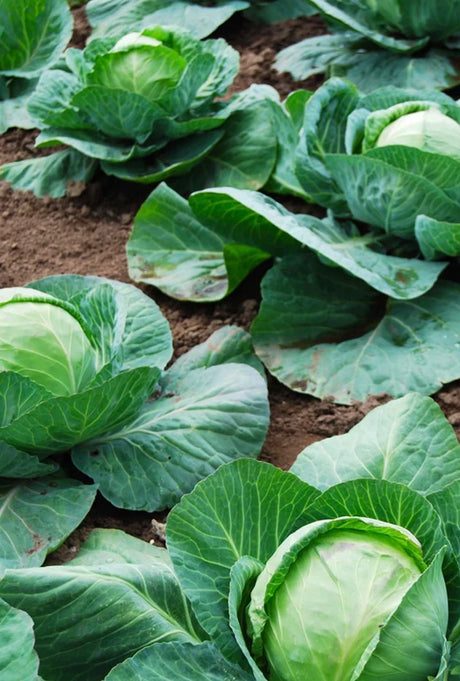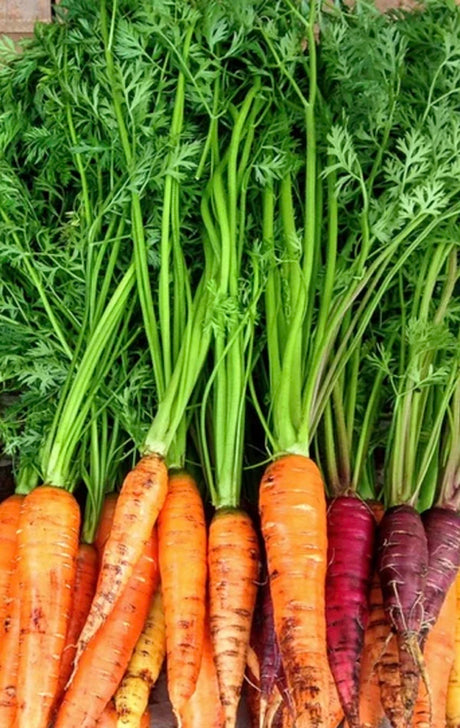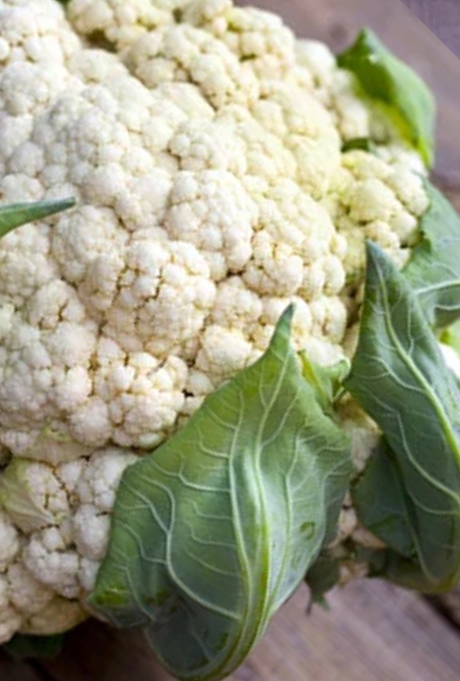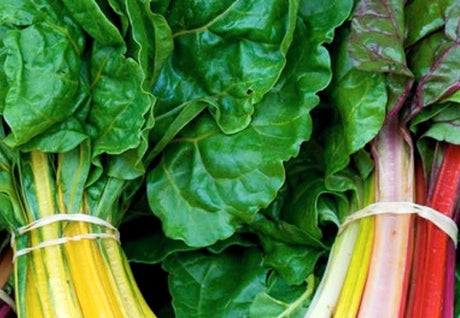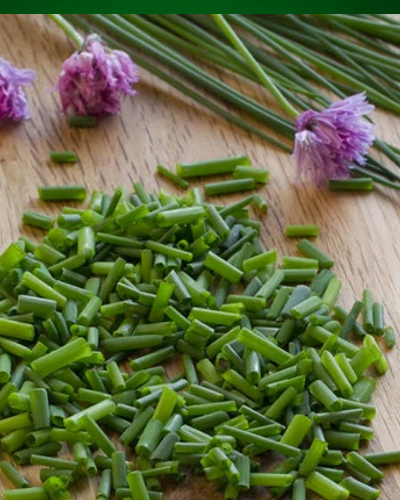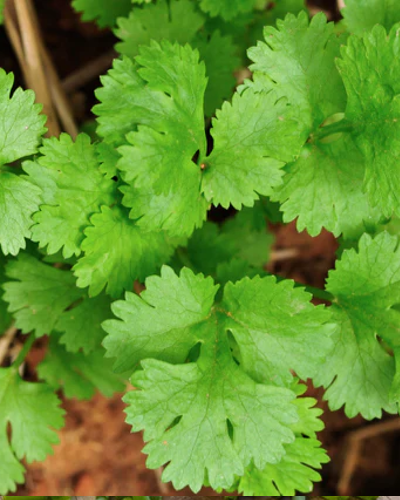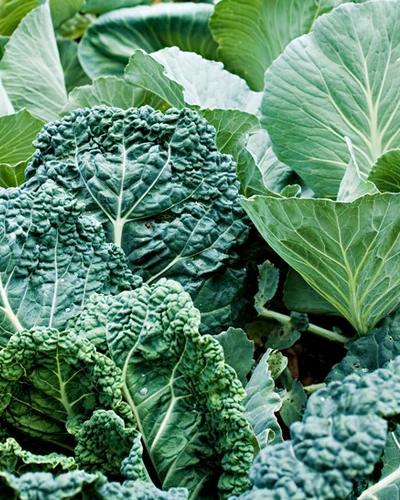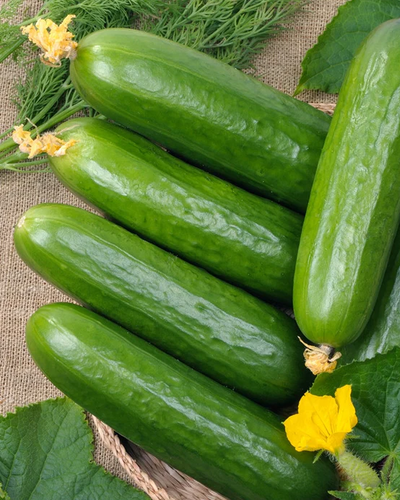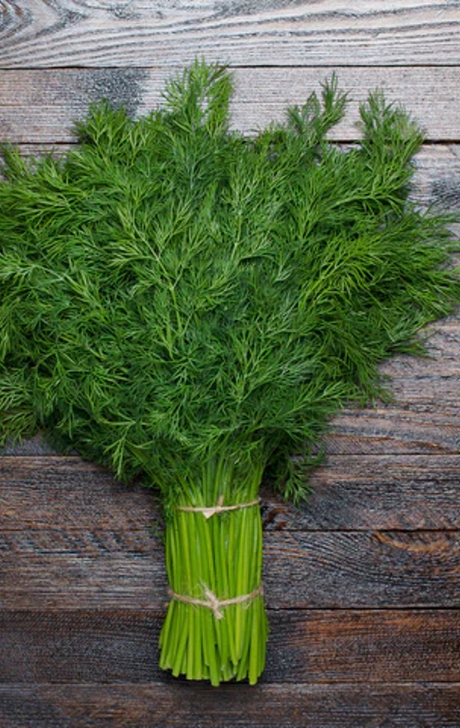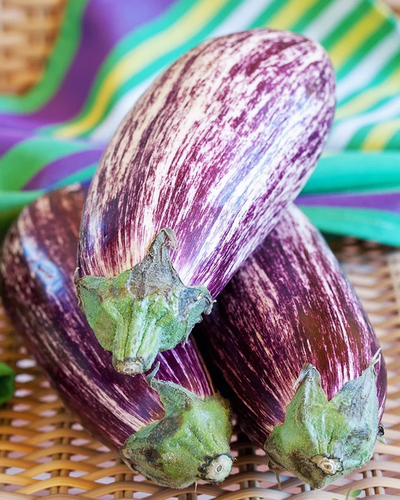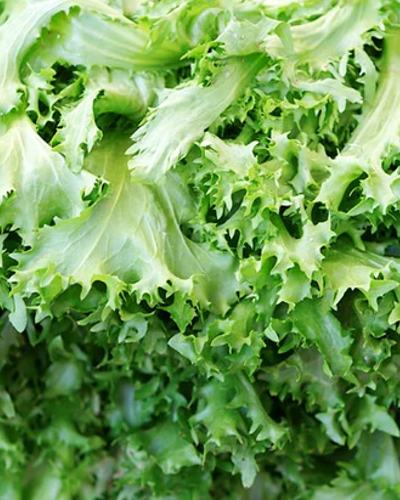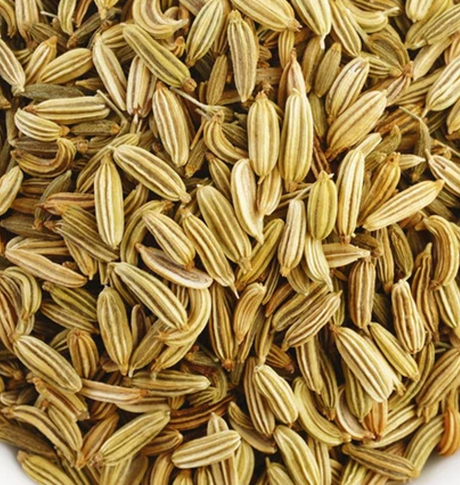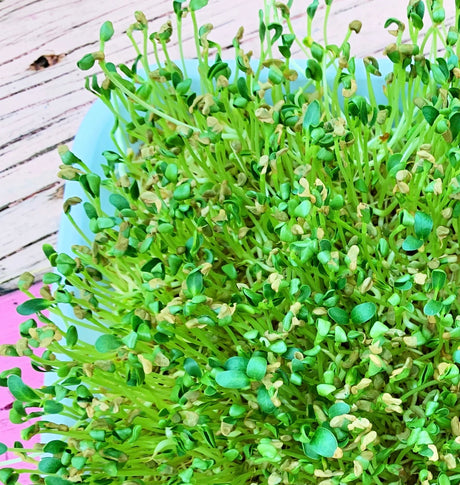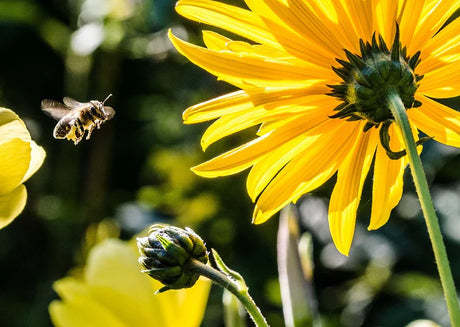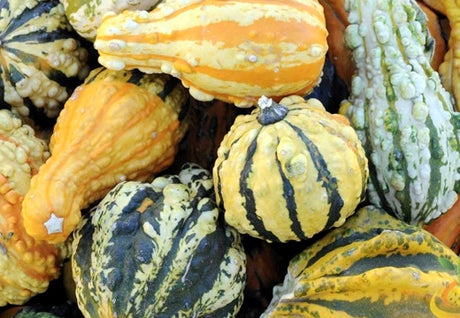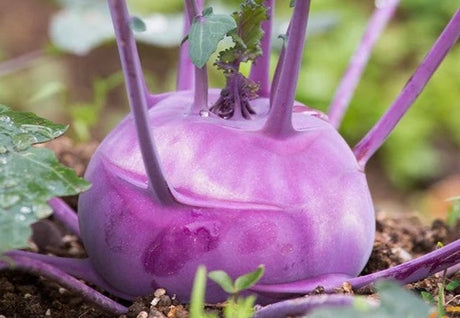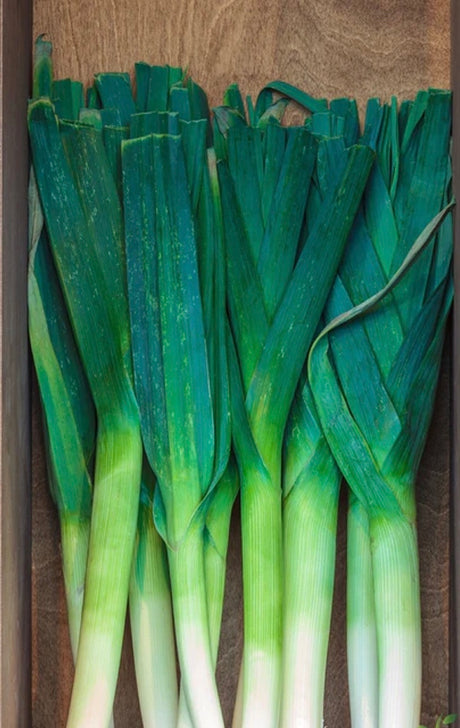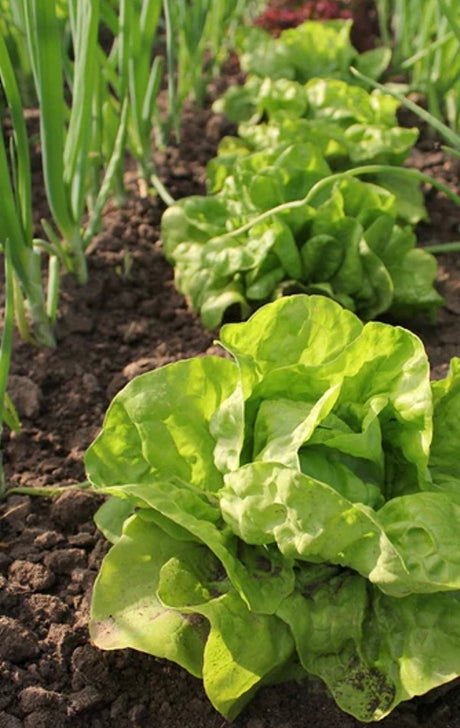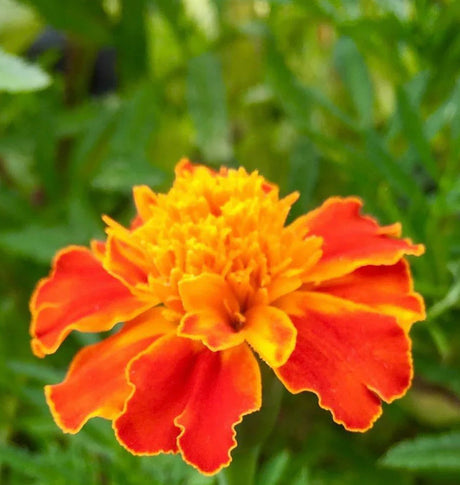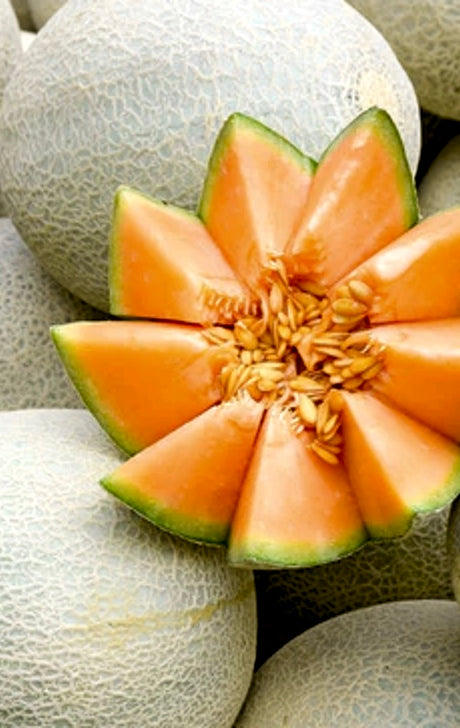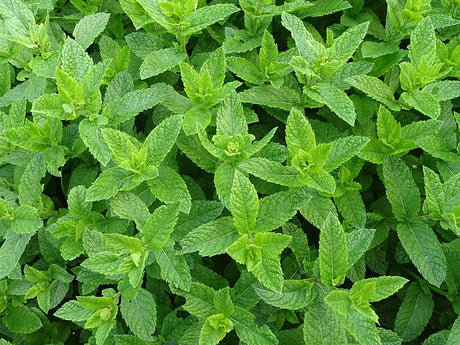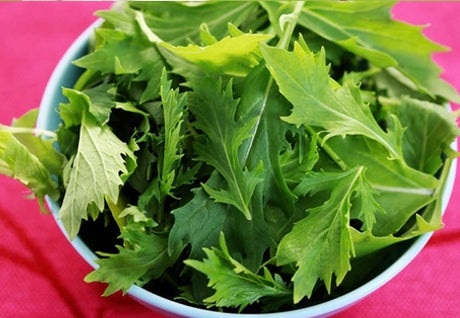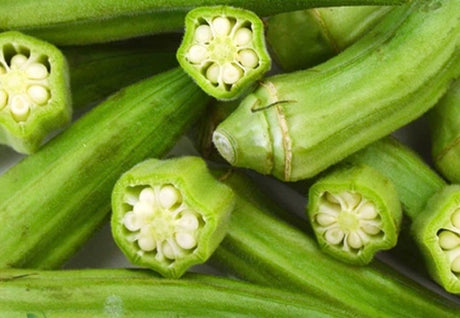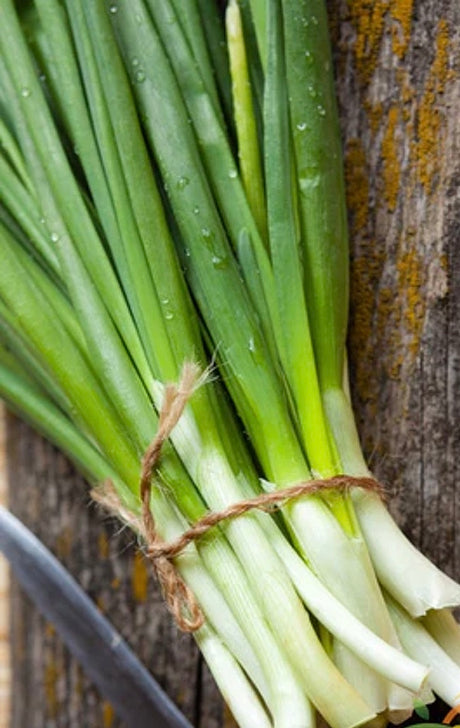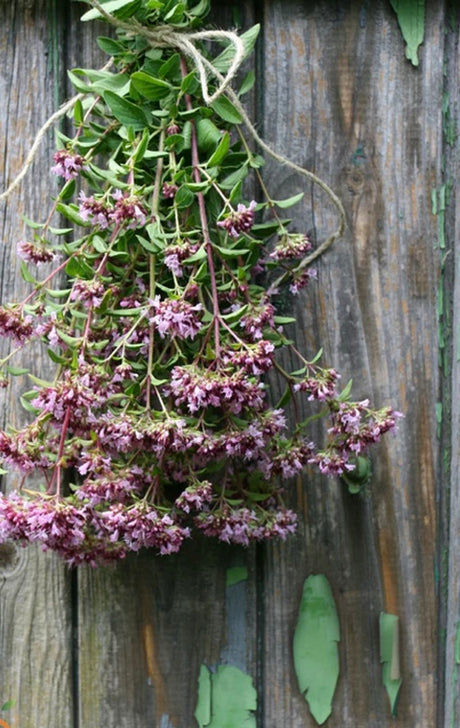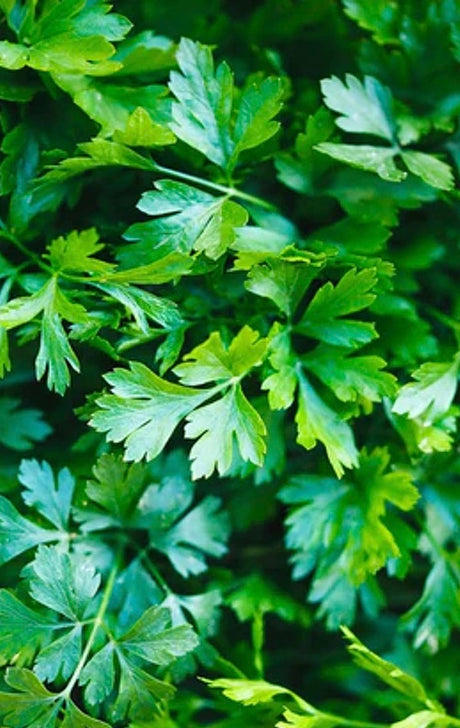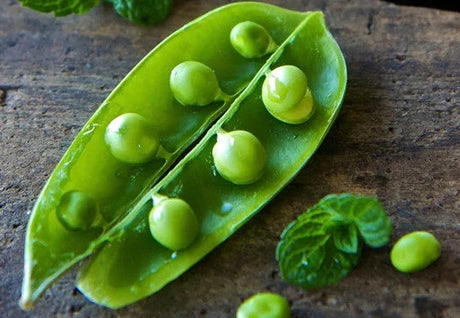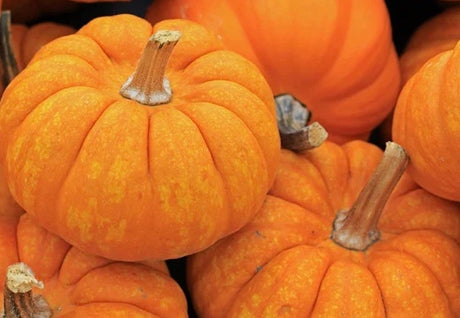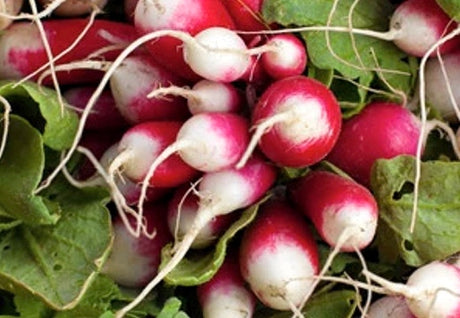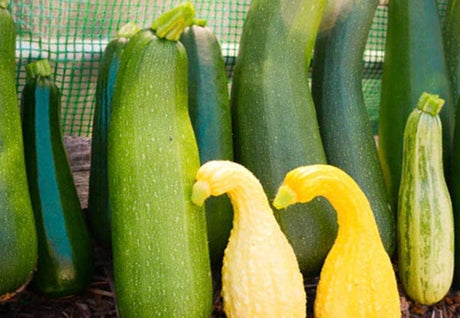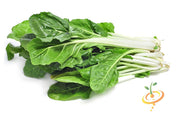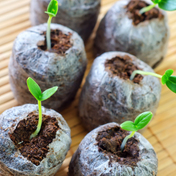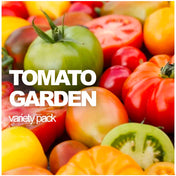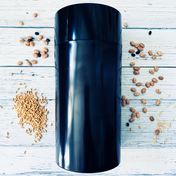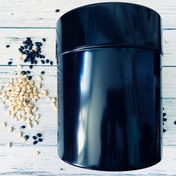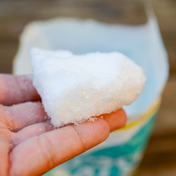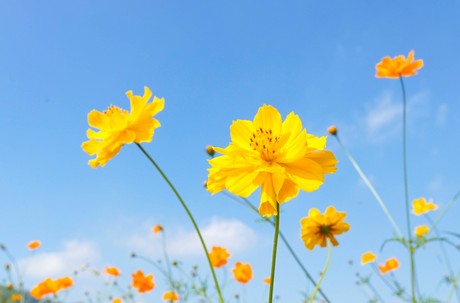Violet is an Asiatic type hard neck. Bulbs are white colored with purple streaks. It produces big bulbs with 10-12 large cloves. Flavor tends to be slightly spicy.
Sprouts/Microgreens - Radish, Daikon
From $399 USDUnit price /UnavailableDescription
- Organic
- They're easy to grow - and - taste great.
- Country of Origin: Italy
-
Hints of pepper flavor.
-
Radish sprouts have gained popularity in recent years.
- Day to Maturity | 3-6 days
Follow SeedsNow.com's board Radish on Pinterest. - Organic
- From $199 USDUnit price /Unavailable
Description
Quick Overview
• Big bulbs!• Hard neck
• Excellent flavor
Details
How to Plant Garlic
Garlic can be planted in the spring as soon as the ground can be worked, but fall planting is recommended. Bulbs will grow bigger and more flavorful when you plant them in the fall. Plant 6 to 8 weeks before your first hard frost. In southern areas, February or March can be a better time to plant.
Key Planting Info:
- Break apart cloves from bulb but keep the papery husk on each individual clove.
- Ensure soil is well-drained with plenty of organic matter. Plant in Full Sun.
- Plant 4 inches apart & 2 inches deep, in their upright position (the wide end down and pointed end facing up).
- Come springtime, shoots will begin to emerge.
Click here for a more detailed Garlic Grow Guide -> Tomato - Green Grape (Indeterminate)
From $299 USDUnit price /UnavailableDescription

The Green Grape Tomato produces clusters of 6-8 fruits on a compact plant all summer long. The slightly oblong 1" fruits turn a light yellow-green when ripe, with a sweet, sharp flavor that’s a bit like citrus. These look so much like green grapes, you may be tempted to make vino de tomato verde, but please resist.
- Sweet, citrus flavor
- Reliable producer
- High yields
- Good for containers
SEED PLANTING TIPS
- Botanical name: Solanum lycopersicum
- Growth type: Indeterminate, trellis support, regular pruning
- Tomato size: Small (1" oval)
- Depth to plant seeds: 1/8" deep
- Spacing between plants: 24" apart
- Spacing between rows: 36"-48" apart
- Days to germinate (sprout): 7-14 days
- Germination soil temps: 75F-95F
- Soil needs: 6.0-6.5 pH
- Sun needs: Full sun
- Frost hardy: No
- Planting season: Spring, summer
- # of plants per sq. ft.: Appx. 1 plant per 2 sq. ft.
- Days to maturity: 70-80 days
Click here to view our full Tomato grow guide
Good companion plants: Basil, Borage, Onion, Parsley, Pepper
Bean - Jicama/Mexican Yam Bean
From $099 USDUnit price /UnavailableDescription
Jicama - Mexican Yam Bean
- Pachyrhizus erosus, commonly known as jicama, Mexican yam bean, or Mexican turnip, is the name of a native Mexican vine, although the name most commonly refers to the plant's edible tuberous root. (source/wikipedia)
- Grows as a large vine.
- Day to Maturity | 80 days
-
Best Months to Plant | [April - June] Beans like sun and water. Give them lots of it and they'll grow fast.
-
Pole Beans | Beans can be grown in average soil, almost anywhere in the United States. Set 3 rough barked, 6 foot poles in the ground, tepee fashion, and tie together at the top
Click here for complete Pole Bean grow guide
- Pachyrhizus erosus, commonly known as jicama, Mexican yam bean, or Mexican turnip, is the name of a native Mexican vine, although the name most commonly refers to the plant's edible tuberous root. (source/wikipedia)
- From $399 USDUnit price /Unavailable
Description
- Produces white radishes that grow to 1.5" in diameter
- The white flesh is crisp and mild in flavor
- Great for selling at farmers markets
- Grows well in containers and small spaces
-
Days to Maturity | 25-30 days
Additional DetailsRadishes are rich in ascorbic acid, folic acid, and potassium. They are a good source of vitamin B6, riboflavin, magnesium, copper, and calcium. One cup of sliced red radish bulbs provides approximately 20 calories, largely from carbohydrates
Follow SeedsNow.com's board Radishes on Pinterest. - Produces white radishes that grow to 1.5" in diameter
- From $399 USDUnit price /Unavailable
Description

The Violet Star Artichoke is a dramatic alternative to the traditional Green Globe Artichoke. It produces a vibrant purple flower bud with a nutty flavor and creamy texture. Choose a sunny spot in your garden with lots of room for this dark beauty to grow. Artichokes are perennial plants that keep coming back bigger and more productive every year.
- Heat tolerant
- Drought tolerant
- Usually produces in 2nd year
- Perennial
- From $399 USDUnit price /Unavailable
Description
-
The Nutri-Red carrot is a brilliant red color with a tinge of orange .
- 9" long slim tapered ends.
- Excellent for stews and many culinary creations.
- Tender and very sweet with a strong carrot flavor.
- Carrots are a sun-loving plants that also like the cold.
- Just keep them consistently watered and they'll be happy.
-
Day to Maturity | 75 days
- Carrot Seeds | Carrots are an annual cool-season crop, half-hardy to frost and light freezes. Sow seeds evenly in a very shallow furrow, about 1/4 inch deep, and keep seeds moist so they will germinate.
Click here for complete Carrot grow guide
Additional DetailsCarrot gets its characteristic and bright orange colour from β-carotene, which is metabolised into vitamin A in humans when bile salts are present in the intestines. Carrots are also rich in dietary fibre, antioxidants, and minerals.
Follow SeedsNow.com's board Carrots on Pinterest. -
The Nutri-Red carrot is a brilliant red color with a tinge of orange .
Sprouts/Microgreens - Carrots (Micro)
From $499 USDUnit price /UnavailableDescription
Growing carrot microgreens and sprouts indoors is a rewarding way to enjoy fresh, nutritious greens year-round. Simply soak the seeds briefly, then spread them evenly on a clean, well-draining growing medium in a shallow tray. Keep the soil consistently moist and place the tray in a bright spot with indirect light or under a grow light for best results. Within just days, you’ll see vibrant sprouts ready to add a sweet, fresh flavor to your meals. Harvest microgreens in 10–14 days for a nutrient-packed boost that’s easy, convenient, and perfect for elevating your cooking at home.
Carrot microgreens require a fine, well-drained growing medium and consistent moisture to thrive. Sow seeds evenly on the surface and lightly cover them. Maintain temperatures between 60-75°F (15-24°C) and provide bright, indirect light once sprouts emerge to foster strong growth. Harvest when the first true leaves develop, cutting just above the soil line. These nutrient-rich microgreens offer a fresh, sweet carrot flavor, ideal for enhancing salads, sandwiches, and garnishes with a crisp, vibrant touch.
Carrot micro-greens are a new trend. And for good reason. They taste great and they are extremely nutritious.
- From $399 USDUnit price /Unavailable
Description
- These tomatillo seeds will produce delicious 3-5 ounce fruits.
- Tomatillo is popularly used to make salsas.
- Days to Maturity | 85 days
- These tomatillo seeds will produce delicious 3-5 ounce fruits.
Eggplant - Long Green Louisiana
From $299 USDUnit price /UnavailableDescription

- Solanum melongena. Produces excellent yields of 9" long/glossy light green eggplants
- White flesh
- Very delicious with nutty flavor and no bitterness
- Excellent for Creole fish stew and other culinary creations -
Days to Maturity | 65 days
-
Eggplant Seeds | Start seed indoors to allow at least 10 weeks for young plants to develop. Plant in rows 3 feet apart, with 2 feet between plants.
Click here for complete Eggplant grow guide
- Solanum melongena. Produces excellent yields of 9" long/glossy light green eggplants
Pepper (Hot) - Scotch Bonnet, Red 🔥🔥🔥
From $499 USDUnit price /UnavailableDescription

The Red Scotch Bonnet Pepper is so named because its defined lobes resemble a Scotsman’s tam o’ shanter hat. Also called the Caribbean Red Pepper, the stout little fruit is sweeter and fruitier than its cousin, the Habanero, and hot enough to make a bird fly north for the winter. The plant puts out loads of 1"-2" green waxy fruits with thin skin that ripen through yellow, orange, and red. Its extreme heat and unique flavor is traditionally used in Caribbean hot sauce and jerk seasoning, but will be just as tasty and burn just as hot in any of your recipes.- High yields
- Fresh, fruity flavor
- Harvest any color
- Good for containers
SEED PLANTING TIPS
- Botanical name: Capsicum chinense
- Pepper length: 1"-2"
- Scoville heat units (SHU): 100,000-350,000/hot
- Plant support: Tomato cage or stake
- Depth to plant seeds: .25" deep
- Spacing between plants: 18"-24" apart
- Spacing between rows: 24"-36" apart
- Days to germinate (sprout): 7-21 days
- Germination soil temps: 75F-85F
- Soil needs: 6.0-7.0 pH
- Sun needs: Full sun
- Frost hardy: No
- Planting season: Spring, summer
- # of plants per sq. ft.: Appx. 1 plant per sq. ft.
- Days to maturity: 90-120 days
Good companion plants: Basil, Carrot, Cucumber, Eggplant, Okra, Rosemary, Sage, Squash, Tomato
All Peppers ⟐ Hot Peppers 📚 Hot Peppers Grow Guide Shallot (sets) - Dutch, Yellow (Organic)
From $399 USDUnit price /UnavailableDescription

Quick Overview:- Easy to grow
- Excellent keeper
- Creamy yellow flesh
- High yielding
Variety Details:
Durable copper skin and creamy yellow flesh. Uniform in size and excellent keeper. Tender and spicy, with a pungent raw flavor that mellows and sweetens but still retains character when cooked. High yielding. Contains potassium and vitamins A, B-6 and CHow to Plant:
Plant the pointy side of the shallot facing up with no more than 1/4" of soil covering the shallot. Make sure your have 7-8 inches of soil to allow the roots to grow freely.
Note: Each shallot can typically yield about 5-10 shallots per harvest. Best time to plant is usually in the Fall (Sept. - Nov.)- From $399 USDUnit price /Unavailable
Description
- These tomatillo seeds will produce delicious 3-5 ounce fruits.
- Tomatillo is popularly used to make salsas.
- Days to Maturity | 85 days
- These tomatillo seeds will produce delicious 3-5 ounce fruits.
Tomato - Oxheart, Orange (Indeterminate)
From $299 USDUnit price /UnavailableDescription
The Orange Oxheart Tomato is what you call eye candy. High yields of deep orange heart-shaped fruits glowing against a backdrop of emerald green leaves provide a stunning visual in any garden. They’re tasty, too. Meaty, fruity, juicy slicers grow and ripen all summer long, giving you more time for more eyefuls.
You may also like: Pink Oxheart Tomatoes ⟐ Yellow Oxheart Tomatoes- Sweet and juicy
- Small seed core
- High yields
- Good fresh and cooked
SEED PLANTING TIPS
- Botanical name: Solanum lycopersicum
- Growth type: Indeterminate, trellis support, regular pruning
- Tomato size: Large (1-2 lbs.)
- Depth to plant seeds: .25" deep
- Spacing between plants: 24" apart
- Spacing between rows: 36"-48" apart
- Days to germinate (sprout): 7-14 days
- Germination soil temps: 75F-95F
- Soil needs: 6.0-6.5 pH
- Sun needs: Full sun
- Frost hardy: No
- Planting season: Spring, summer
- # of plants per sq. ft.: Appx. 1 plant per 2 sq. ft.
- Days to maturity: 75-85 days
Click here to view our full Tomato grow guide
Good companion plants: Basil, Borage, Onion, Parsley, Pepper
Bean, Runner/Pole - White Emergo
From $099 USDUnit price /UnavailableDescription
The White Emergo Runner Pole Bean twinkles with lots of sweet white flowers, which may be why it’s also known as Sweet White Runner Bean. Vigorous vines can grow to 10' to support long 8"-12" pods with creamy white beans inside. Pick young for snap beans and mature for shell beans, or let them dry for a bean similar to cannellini.
- Easy to grow
- Tasty white beans
- Long pods up to 8"-12”
- Eat fresh, shelled, or dried
SEED PLANTING TIPS
- Botanical name: Phaseolus coccineus
- Depth to plant seeds: 1" deep
- Spacing between plants: 5" apart
- Spacing between rows: 18"-24" apart
- Days to germinate (sprout): 8-14 days
- Germination soil temps: 70F-85F
- Soil needs: 6.0-7.0 pH
- Sun needs: Full sun
- Frost hardy: No
- Planting season: Spring, summer
- # of plants per sq. ft.: Appx. 4 plants per sq. ft.
- Days to maturity: 80-115 days
Click here to view our full Bean grow guide
Good companion plants: Cucumber, Pea, Rosemary, Thyme, Tomato
Sunflower, Chocolate Cherry Flowers
From $399 USDUnit price /UnavailableDescription
Garlic - (Hard Neck) Chesnok Red
From $299 USDUnit price /UnavailableDescription
Quick Overview
• Hard neck
• Good for baking
Details
A very large bulb that contains 9-10 nicely colored, easy-to-peel cloves. Especially good for baking because it holds its shape, and keeps its delightful aroma. Originated in the country of Georgia.
Garlic Chesnok Red is a hard-neck variety prized for its rich, robust flavor and easy peeling. Ideal for cooler climates, it produces large, plump cloves enclosed in a deep red-purple skin. Its sturdy neck supports scapes that can be harvested for a milder garlic taste. This cultivar offers excellent storage capability, making it a reliable choice for long-term use. Perfect for both culinary and medicinal applications, Chesnok Red thrives in well-drained soil with consistent moisture, requiring moderate care to yield a bountiful harvest.
How to Plant Garlic
Garlic can be planted in the spring as soon as the ground can be worked, but fall planting is recommended. Bulbs will grow bigger and more flavorful when you plant them in the fall.
Key Planting Info:
- Break apart cloves from bulb but keep the papery husk on each individual clove.
- Ensure soil is well-drained with plenty of organic matter. Plant in Full Sun.
- Plant 4 inches apart & 2 inches deep, in their upright position (the wide end down and pointed end facing up).
- Come springtime, shoots will begin to emerge.
Click here for a more detailed Garlic Grow Guide ->- From $399 USDUnit price /Unavailable
Description
- These tomatillo seeds will produce delicious 3-5 ounce fruits.
- Tomatillo is popularly used to make salsas.
- Days to Maturity | 85 days
- These tomatillo seeds will produce delicious 3-5 ounce fruits.
Carrot - St. Valery/James Scarlet, 12" Long
From $399 USDUnit price /UnavailableDescription
- Old French variety that produces extremely sweet and delicious carrots up to 12” in length
- Tender, sweet, and smooth roots
-
Also known as the “James Scarlet”
-
Days to Maturity | 70 days
-
Carrot Seeds | Carrots are an annual cool-season crop, half-hardy to frost and light freezes. Sow seeds evenly in a very shallow furrow, about 1/4 inch deep, and keep seeds moist so they will germinate.
Click here for complete Carrot grow guide
Additional Details
Carrot gets its characteristic and bright orange colour from β-carotene, which is metabolised into vitamin A in humans when bile salts are present in the intestines. Carrots are also rich in dietary fibre, antioxidants, and minerals.
- Old French variety that produces extremely sweet and delicious carrots up to 12” in length
Pea (Snow) - Mammoth Melting Sugar
From $399 USDUnit price /UnavailableDescription
- This popular pea variety is sweet, sugary and tender
- This edible pod snow pea has made its place in home gardens for many years
- These pea pods are some of the biggest ( appx. 4-5")
- Makes for an excellent addition to stir fry
- Big white flowers are an bonus as they quickly turn into tasty peas
- This pea has been so successful it has been considered a commercial variety for generations
- Days to Maturity | 65-70 days
Additional DetailsPeas are high in vitamin A, vitamin C, B vitamins and lutein. Dry weight is about one-quarter protein and one-quarter sugar.
Pepper (Hot) - Holiday Marbles 🔥
From $399 USDUnit price /UnavailableDescription
The Holiday Marbles Pepper is an assortment of tiny peppers with a tiny spark of heat. Compact plants cast out lots of green peppers that ripen through cream, yellow, purple, orange, and red. Shoot fresh ones onto a salad, or play for keeps and dry them whole to use like peppercorns.- High yields
- Edible ornamental
- Harvest any color
- Good for containers
SEED PLANTING TIPS
- Botanical name: Capsicum annuum
- Pepper size: 1/4"-1/2"
- Scoville heat units (SHU): 300-500/mild
- Plant support: Tomato cage or stake
- Depth to plant seeds: 1/8" deep
- Spacing between plants: 12"-18" apart
- Spacing between rows: 24"-36" apart
- Days to germinate (sprout): 7-21 days
- Germination soil temps: 75F-85F
- Soil needs: 6.0-7.0 pH
- Sun needs: Full sun
- Frost hardy: No
- Planting season: Spring, summer
- # of plants per sq. ft.: Appx. 1 plant per sq. ft.
- Days to maturity: 90+ days
Good companion plants: Basil, Carrot, Cucumber, Eggplant, Okra, Rosemary, Sage, Squash, Tomato
All Peppers ⟐ Hot Peppers 📚 Hot Peppers Grow Guide Pepper (Hot) - Habanero, White 🔥🔥🔥🔥
From $499 USDUnit price /UnavailableDescription

The White Habanero Pepper produces lots of small 1"-2" fruits, all of them infused with smoky, sweet flavor and a heat like white lightning. These little thunderbolts start out green and ripen to a glossy pearl. Use them to wake up a pot of white bean chicken chili or add a flash of fire to a jar of mayonnaise.- Very high yields
- Sweet, citrusy flavor
- Hot enough to make a monkey cough
- Good for containers
SEED PLANTING TIPS
- Botanical name: Capsicum chinense
- Pepper length: 1"-2"
- Scoville heat units (SHU): 100,000-300,000/very hot
- Plant support: Tomato cage or stake
- Depth to plant seeds: .25" deep
- Spacing between plants: 18"-24" apart
- Spacing between rows: 24"-36" apart
- Days to germinate (sprout): 10-30 days
- Germination soil temps: 75F-85F
- Soil needs: 5.0-6.0 pH
- Sun needs: Full sun
- Frost hardy: No
- Planting season: Spring, summer
- # of plants per sq. ft.: Appx. 1 plant per sq. ft.
- Days to maturity: 85-105 days
Good companion plants: Basil, Carrot, Cucumber, Eggplant, Okra, Rosemary, Sage, Squash, Tomato
All Peppers ⟐ Hot Peppers 📚 Hot Peppers Grow Guide Daisy, African Flake (Cape Marigold) Flowers
From $399 USDUnit price /UnavailableDescription
The African Flake Daisy (Dimorphotheca sinuata), also called Cape Marigold, puts out 2"-3" daisy-like flowers in bright, happy colors of orange, white, and yellow around brown-rimmed centers on 8"-16" stems. Whether in the garden or a vase, this day flower closes up its petals at night, reopening the next day. Drought tolerant and blooms early.
- Life cycle: Annual
- Bloom season: Spring, summer, fall
- Attracts: Bees, butterflies, and other pollinators
- Flower meaning: Innocence, new beginnings, purity, true love
SEED PLANTING TIPS
- Botanical name: Dimorphotheca sinuata
- Hardiness zones: 2-11
- Planting season: Spring, fall
- Days to maturity: 90 days
- Cold stratify: No
- Depth to plant seeds: Lightly cover - seeds need light to germinate
- Spacing between plants: 8"-12" apart
- Days to germinate (sprout): 10-21 days
- Germination soil temps: 65F-75F
- Soil types: Sandy, loamy, well-drained
- Soil pH: 6.5-7.0
- Water needs: Low - prefers dry soil
- Sun needs: Full sun
- Frost tolerant: No
- Drought tolerant: Yes
- Deer resistant: Yes
- From $399 USDUnit price /Unavailable
Description

- Fruits are black and round
- Excellent flavor and a must -try if you you enjoy eggplant
- Easy to grow
-
Eggplant Seeds | Start seed indoors to allow at least 10 weeks for young plants to develop. Plant in rows 3 feet apart, with 2 feet between plants.
Click here for complete Eggplant grow guide
- Fruits are black and round
Garlic - (Hard Neck) Russian Red
From $299 USDUnit price /UnavailableDescription
Quick Overview
• Hard neck
• RocamboleDetails
Red Russian is a rocambole garlic that was brought to the Pacific Northwest by Russian immigrants in the 1900s. It can withhold very cold winter temperatures while being grown in the garden. Early-Mid Season and averages 6-7 cloves per bulb.
How to Plant Garlic
Garlic can be planted in the spring as soon as the ground can be worked, but fall planting is recommended. Bulbs will grow bigger and more flavorful when you plant them in the fall. Plant 6 to 8 weeks before your first hard frost. In southern areas, February or March can be a better time to plant.
Key Planting Info:
- Break apart cloves from bulb but keep the papery husk on each individual clove.
- Ensure soil is well-drained with plenty of organic matter. Plant in Full Sun.
- Plant 4 inches apart & 2 inches deep, in their upright position (the wide end down and pointed end facing up).
- Come springtime, shoots will begin to emerge.
Click here for a more detailed Garlic Grow Guide ->- From $299 USDUnit price /Unavailable
Description
Slightly tangy lemon flavor which adds zest to salads and is especially good with fish. The leaves grow up to 8" long and can also be cooked like spinach or even used in soups. Sure to be your new favorite.
55 days to maturity
- From $299 USDUnit price /Unavailable
Description
The Roma II Bush Bean is an Italian snap bean with flat stringless pods. A tender, meaty bean that retains its fresh flavor when cooked or canned, and is hearty enough to throw on the grill. This high yielder grows tall, making it easy to harvest lots of wide 5"-6" pods.
- Easy to grow
- Tender and flavorful
- Stringless variety
- High yields
SEED PLANTING TIPS
- Botanical name: Phaseolus vulgaris
- Depth to plant seeds: 1.25" deep
- Spacing between plants: 5-6" apart
- Spacing between rows: 18"-24" apart
- Days to germinate (sprout): 5-10 days
- Germination soil temps: 70F-85F
- Soil needs: 6.0-7.0 pH
- Sun needs: Full sun
- Frost hardy: No
- Planting season: Spring, summer, fall
- # of plants per sq. ft.: Appx. 4 plants per sq. ft.
- Days to maturity: 58-65 days
Click here to view our full Bean grow guide
Good companion plants: Cucumber, Pea, Rosemary, Thyme, Tomato
Garlic - (Hard Neck) Porcelain Musik
From $299 USDUnit price /UnavailableDescription
Quick Overview
• Porcelain• Hard-neck
• Very cold hardy
Details
A favorite, Musik is a porcelain type hardneck garlic with a rich flavor and medium to hot heat. Containing 4 to 8 easy to peel buff-colored cloves streaked with red highlights, it has excellent yields and is very cold hardy. Stores for 6 months or more.
Porcelain Musik is a hardneck variety that is well-suited for garden cultivation in temperate regions. It produces large, firm bulbs with a rich, complex flavor favored by chefs and gardeners alike. This variety develops a robust scape and exhibits excellent cold tolerance, allowing it to mature fully in cooler climates. Its natural resistance to diseases and pests ensures a dependable crop. Porcelain Musik’s cloves are easy to peel and store well, making it an outstanding choice for gardeners seeking premium garlic with superior taste and reliability.
How to Plant Garlic
Garlic can be planted in the spring as soon as the ground can be worked, but fall planting is recommended. Bulbs will grow bigger and more flavorful when you plant them in the fall. Plant 6 to 8 weeks before your first hard frost. In southern areas, February or March can be a better time to plant.
Key Planting Info:
- Break apart cloves from bulb but keep the papery husk on each individual clove.
- Ensure soil is well-drained with plenty of organic matter. Plant in Full Sun.
- Plant 4 inches apart & 2 inches deep, in their upright position (the wide end down and pointed end facing up).
- Come springtime, shoots will begin to emerge.
Click here for a more detailed Garlic Grow Guide ->Garlic - (Hard Neck) German, Red
From $299 USDUnit price /UnavailableDescription
Quick Overview
• Grows well in most any climate.• Hard neck
• Strong flavor
Details
This large bright purple bulb contains 8-12, extra easy-to-peel, round, light brown cloves with some purple at the base. Flavor is strong, hot, and spicy. Keeps moderately well when properly cured and stored. Can be grown in mild climates; However, develops better quality and size where winters are cold. Color will become brighter if it is stressed by too much water.
How to Plant Garlic
Garlic can be planted in the spring as soon as the ground can be worked, but fall planting is recommended. Bulbs will grow bigger and more flavorful when you plant them in the fall. Plant 6 to 8 weeks before your first hard frost. In southern areas, February or March can be a better time to plant.
Key Planting Info:
- Break apart cloves from bulb but keep the papery husk on each individual clove.
- Ensure soil is well-drained with plenty of organic matter. Plant in Full Sun.
- Plant 4 inches apart & 2 inches deep, in their upright position (the wide end down and pointed end facing up).
- Come springtime, shoots will begin to emerge.
Click here for a more detailed Garlic Grow Guide ->- From $399 USDUnit price /Unavailable
Description
The Golden Wax Bush Bean is a beautiful buttery treat in the garden. With its long, straight yellow pods, this heavy producing stringless bean is easy to cook or can. Grow these alongside Borlotti Bush Beans and Royal Burgundy Bush Beans for an artistic change from the usual green beans.
- Easy to grow
- Stringless variety
- Produces long 5"-7" pods
- Buttery wax bean flavor
SEED PLANTING TIPS
- Botanical name: Phaseolus vulgaris
- Depth to plant seeds: 1" deep
- Spacing between plants: 4"-6" apart
- Spacing between rows: 18"-24" apart
- Days to germinate (sprout): 10-14 days
- Germination soil temps: 70F-85F
- Soil needs: 6.0-7.0 pH
- Sun needs: Full sun
- Frost hardy: No
- Planting season: Spring, summer, fall
- # of plants per sq. ft.: Appx. 4 plants per sq. ft.
- Days to maturity: 65-75 days
Good companion plants: Cucumber, Pea, Rosemary, Thyme, Tomato
- From $299 USDUnit price /Unavailable
Description
Quick Overview
• A favorite amongst chefs• Easy to peel• Hard neck
• Strong, hot and full flavoredDetails
This hard neck packs a punch! Strong, hot and full flavored, Svea is perfect for baking and is a favorite with chefs. Fat, purple streaked, easy to peel cloves per bulb. Thrives in colder climates, good storage.
Svea is a robust variety prized for its strong flavor and reliable growth in cooler climates. This hard-neck garlic produces large cloves with easy-to-peel skins, ideal for culinary use. Its sturdy neck supports the formation of a scape, signaling optimal harvest time. Svea thrives in well-drained soils and benefits from a cold dormant period, making it well-suited for gardeners seeking a hardy, flavorful garlic that stores well through the winter months.
How to Plant Garlic
Garlic can be planted in the spring as soon as the ground can be worked, but fall planting is recommended. Bulbs will grow bigger and more flavorful when you plant them in the fall. Plant 6 to 8 weeks before your first hard frost. In southern areas, February or March can be a better time to plant.
Key Planting Info:
- Break apart cloves from bulb but keep the papery husk on each individual clove.
- Ensure soil is well-drained with plenty of organic matter. Plant in Full Sun.
- Plant 4 inches apart & 2 inches deep, in their upright position (the wide end down and pointed end facing up).
- Come springtime, shoots will begin to emerge.
Click here for a more detailed Garlic Grow Guide -> Garlic - (Hard Neck) Spanish Roja
From $299 USDUnit price /UnavailableDescription
Quick Overview
• Hard neck
• Rocambole
Details
Gourmet garlic famous for flavor! Light purple streaks on 7-13 easy-to-peel cloves. Suited to colder climates. May not yield well where winters are too mild. Very popular with market gardeners and restaurants. Brought to the Northwest before 1900; often called “Greek Blue”.
How to Plant Garlic
Garlic can be planted in the spring as soon as the ground can be worked, but fall planting is recommended. Bulbs will grow bigger and more flavorful when you plant them in the fall.
Key Planting Info:
- Break apart cloves from bulb but keep the papery husk on each individual clove.
- Ensure soil is well-drained with plenty of organic matter. Plant in Full Sun.
- Plant 4 inches apart & 2 inches deep, in their upright position (the wide end down and pointed end facing up).
- Come springtime, shoots will begin to emerge.
Click here for a more detailed Garlic Grow Guide ->Pea - Alaska Early (Earliest of All)
From $399 USDUnit price /UnavailableDescription
The Alaska Early Pea (Pisum sativum), originally named Earliest of All, has a lot of great qualities. As you can guess, it’s one of the earliest to produce in only 55 days. It’s a semi-dwarf frost-tolerant bush variety that grows to only 2'-3' tall and doesn’t require staking. And it produces lots of 2"-3" pods with 5-8 small, plump, smooth, peas inside. Nice flavor that isn’t too sweet. It was renamed in the late 1800s after the steamship Alaska. Can be grown in Alaska, the lower 48, and Hawaii.
- Not too sweet
- Full sun
- High yields
- Early maturity—55 days
- Good for containers
Good companion plants: Bean, Carrot, Cucumber, Parsley, Pepper, Sage, Spinach, Squash, Strawberry, Thyme
SEED PLANTING TIPS
- Botanical name: Pisum sativum
- Hardiness zones: 2-11
- Pea type: English/shelling - remove peas from pod before eating
- Growth habit: Bush - no support
- Depth to plant seeds: 1" deep
- Spacing between plants: 2"-3" apart
- Spacing between rows: 18"-24" apart
- Days to germinate (sprout): 7-21 days
- Germination soil temps: 40F-85F
- Soil needs: Clay, sandy, loamy, chalky, rich, moist, well-drained
- Soil pH: 5.5-7.0
- Sun needs: Full sun
- Frost tolerant: Yes
- # of plants per sq. ft.: Appx. 8 plants per sq. ft.
- Days to maturity: 55-60 days
- From $399 USDUnit price /Unavailable
Description
Epazote (Dysphania ambrosioides) is a culinary herb with a lemony green color and serrated leaves, traditionally used to add a bold umami-type depth to Mexican cuisine. Its flavor has been described as a mix of mint and savory with a bit of camphor or turpentine thrown in. An acquired taste. As a companion plant, it attracts beneficial insects and masks the scent of other plants that suffer from pest damage. Also used medicinally to help with stomach upset and to combat intestinal parasites. Can become invasive, so best grown in a container.
- Easy to grow
- Culinary and medicinal uses
- Days to germinate (sprout): 5-7 days
- Quick maturity—only 40 days
Carrot - Paris Market, 2" Round
From $399 USDUnit price /UnavailableDescription
The Paris Market Carrot (Daucus carota) is a tender, adorable 2" round carrot with very sweet flavor. Grows well in containers, shallow beds, and rocky soil. Half-hardy to frost and light freezes. Good steamed, roasted, and fresh.
- Very sweet and crunchy
- Size: 2" in diameter
- Days to germinate (sprout): 7-21 days
- Days to maturity: 35 days
Good companion plants: Broccoli, Cauliflower, Chives, Lettuce, Onion, Parsley, Peas, Rosemary, Sage, Thyme, Tomato
SEED PLANTING TIPS
- Depth to plant seeds: .25" deep
- Spacing between plants: 2" apart
- Spacing between rows: 18"-24" apart
- Days to germinate (sprout): 7-21 days
- Germination soil temps: 65F-85F
- Soil needs: 6.0-6.8 pH
- Sun needs: Full sun
- Hardiness: Half-hardy to frost and light freezes
- Planting season: Spring, fall
- # of plants per sq. ft.: Appx. 16 plants per sq. ft.
- Days to maturity: 70-75 days
Sunflower, Maximillian Flowers
From $399 USDUnit price /UnavailableDescription
The Maximillian Sunflower (Helianthus maximiliani) is a drought-tolerant perennial. Produces a 3"-5" blossom with veined, pointed bright yellow petals around a dark golden center. Grows 3'-10' tall on branching, hairy stems with multiple blooms per stem, and long, narrow, drooping foliage. Bold, robust, and cheerful.
- Life cycle: Perennial
- Bloom season: Summer
- Attracts: Birds, bees, butterflies, and other pollinators
- Flower meaning: Admiration, devotion, happiness, honesty, loyalty, optimism, peace, vitality
SEED PLANTING TIPS
- Botanical name: Helianthus maximiliani
- Hardiness zones: 4-9
- Planting season: Spring, fall
- Days to maturity: 90-100 days
- Cold stratify: Yes
- Depth to plant seeds: 1/2" deep
- Spacing between plants: 36"-48" apart
- Days to germinate (sprout): 7-25 days
- Germination soil temps: 65F-70F
- Soil types: Clay, sandy, loamy, rocky, dry, well-drained
- Soil pH: 6.5-7.8
- Water needs: Low - do not overwater
- Sun needs: Full sun
- Frost tolerant: No
- Drought tolerant: Yes
- Deer resistant: Yes
- From $399 USDUnit price /Unavailable
Description
The Lacy Phacelia (Phacelia tanacetifolia), also known as Scorpionweed and Purple Tansy, is a fast-growing, drought-tolerant, cold-hardy annual in the borage family. Produces coiled, whiskered lavender-colored blossoms that look similar to a scorpion tail, fiddlehead, or thistle. Grows 2'-3' tall on thin, hairy stems with lacy foliage. Plant a few or a field, or add a bit of wildness to a cut arrangement. An especially great companion plant in the vegetable garden as it’s quick to bloom, attracts bees and hoverflies, and stores nitrogen which also makes it a good cover crop.
- Life cycle: Annual
- Bloom season: Summer
- Attracts: Hummingbirds, bees, butterflies, beneficial insects, and other pollinators
- Flower meaning: Determination, endurance, resistance, strength
SEED PLANTING TIPS
- Botanical name: Phacelia tanacetifolia
- Hardiness zones: 3-10
- Planting season: Spring, fall
- Days to maturity: 42-55 days
- Cold stratify: No
- Depth to plant seeds: 1/4" deep
- Spacing between plants: 3"-10" apart
- Days to germinate (sprout): 7-21 days
- Germination soil temps: 40F-65F
- Soil types: Sandy, loamy, silty, rocky, chalky, moist, well-drained
- Soil pH: 6.0-8.5
- Water needs: Average
- Sun needs: Full sun
- Frost tolerant: Yes
- Drought tolerant: Yes
- Deer resistant: Yes
Garlic - (Soft Neck) California Early (Organic)
From $299 USDUnit price /UnavailableDescription
Quick Overview
• Adaptable to any climate!
• Easy growing
• Soft-neck
• Mild flavorDetails
California Early is very adaptable to any climate, and easy to grow. This variety has one of the longest storage life. Flavor is very mild.
California Early is a premium variety prized for its soft, pliable necks, making it ideal for braiding and long-term storage. Grown organically, this early-maturing garlic thrives in diverse climates, producing robust bulbs with rich flavor perfect for culinary and medicinal use. Its adaptable growth habit suits home gardens and small farms, delivering reliable yields of quality garlic while supporting sustainable agriculture practices.
How to Plant Garlic
Garlic can be planted in the spring as soon as the ground can be worked, but fall planting is recommended. Bulbs will grow bigger and more flavorful when you plant them in the fall. Plant 6 to 8 weeks before your first hard frost. In southern areas, February or March can be a better time to plant.
Key Planting Info:
- Break apart cloves from bulb but keep the papery husk on each individual clove.
- Ensure soil is well-drained with plenty of organic matter. Plant in Full Sun.
- Plant 4 inches apart & 2 inches deep, in their upright position (the wide end down and pointed end facing up).
- Come springtime, shoots will begin to emerge.
Click here for a more detailed Garlic Grow Guide ->Shallot (sets) - French, Red (Organic)
From $399 USDUnit price /UnavailableDescription
Each shallot can typically yield about 5-10 shallots per harvest. Best time to plant is usually in the Fall (Sept. - Nov.)
Quick Overview:
- Semi-long with red papery skin
- Pungent flavor
- Creamy inside
- Easy to peel
- Easy to grow
- Stores very well
- Excellent flavor
How to Plant:
Plant the pointy side of the shallot facing up with no more than 1/4" of soil covering the shallot. Make sure your have 7-8 inches of soil to allow the roots to grow freely. Space each bulb 10" - 12" apart from each other.- From $399 USDUnit price /Unavailable
Description
The Green Arrow Pea (Pisum sativum) is an old English heirloom shelling pea. A semi-dwarf frost-tolerant bush variety that grows to only 2'-3' tall and doesn't require staking. High yields for a compact plant. Produces lots of 4"-5" pods with 9-11 plump, tender, sweet peas inside. Delicious fresh or cooked, if you don’t eat them all before you make it into the house.
- Sweet and tender
- Full sun
- High yields
- Good fresh or cooked
- Good for containers
Good companion plants: Bean, Carrot, Cucumber, Parsley, Pepper, Sage, Spinach, Squash, Strawberry, Thyme
SEED PLANTING TIPS
- Hardiness zones: 2-11
- Planting season: Spring
- Pea type: English/shelling - remove peas from pod before eating
- Growth habit: Bush - no support
- Depth to plant seeds: 1" deep
- Spacing between plants: 2"-3" apart
- Spacing between rows: 18"-24" apart
- Days to germinate (sprout): 7-21 days
- Germination soil temps: 40F-85F
- Soil needs: Clay, sandy, loamy, chalky, rich, moist, well-drained
- Soil pH: 5.5-7.0
- Sun needs: Full sun
- Frost tolerant: Yes
- # of plants per sq. ft.: Appx. 8 plants per sq. ft.
- Days to maturity: 65-70 days
Gourd - Pear (Small), Bi-Color
From $399 USDUnit price /UnavailableDescription
- Just as the name suggests, this style of gourd will produce a gourd that is half yellow and half green in the shape of a small pear.
- Just as the name suggests, this style of gourd will produce a gourd that is half yellow and half green in the shape of a small pear.
Garlic - (Hard Neck) Mexican Violet
From $199 USDUnit price /UnavailableDescription
Quick Overview
• VERY COLD HARDY• Hardneck
• Excellent flavor
Details
This is a brand new addition to our seed library. And we are very excited to introduce this incredible hardneck garlic to you all! Rich flavor and medium to hot heat. Containing 4 to 8 easy to peel buff-colored cloves streaked with red highlights, it has excellent yields and is VERY cold hardy. Stores for 6 months or even more. Add a couple cloves to your garden and you won't regret doing so. Super easy to grow and ready for planting now.
How to Plant Garlic
Garlic can be planted in the spring as soon as the ground can be worked, but fall planting is recommended. Bulbs will grow bigger and more flavorful when you plant them in the fall. Plant 6 to 8 weeks before your first hard frost. In southern areas, February or March can be a better time to plant.
Key Planting Info:
- Break apart cloves from bulb but keep the papery husk on each individual clove.
- Ensure soil is well-drained with plenty of organic matter. Plant in Full Sun.
- Plant 4 inches apart & 2 inches deep, in their upright position (the wide end down and pointed end facing up).
- Come springtime, shoots will begin to emerge.
Click here for a more detailed Garlic Grow Guide ->- From $499 USDUnit price /Unavailable
Description
Onion sprouts and microgreens are increasingly popular among indoor gardeners due to their rapid growth and nutritional benefits. These small, tender plants are not only easy to cultivate but also provide a fresh addition to various dishes. This guide will provide insights into the process of growing onion sprouts and microgreens indoors, focusing on the necessary conditions, techniques, and benefits.
Onion sprouts typically germinate within 7 to 14 days, making them an excellent choice for those seeking a quick harvest.
Soak the seeds in water for a few hours before planting can enhance germination rates, as it allows the seeds to absorb moisture and initiate the sprouting process.
For indoor cultivation, a shallow tray filled with a growing medium, such as potting soil or coconut coir, is recommended. The medium should be moistened but not overly saturated, as excess water can lead to mold growth. Once the seeds are evenly spread across the surface, a light layer of soil can be added to cover them. Maintaining a consistent moisture level is crucial during the germination phase.
Light is another critical factor in the successful growth of onion sprouts and microgreens. They require approximately 12 to 16 hours of light daily. Natural sunlight is ideal, but if this is not available, using fluorescent or LED grow lights can effectively supplement their needs. Positioning the lights about 2 to 4 inches above the plants will help prevent leggy growth while ensuring adequate light exposure.
Temperature also plays a significant role in the growth of onion sprouts. A range of 65°F to 75°F (18°C to 24°C) is optimal for germination and growth. Monitoring the temperature and adjusting the environment as necessary will promote healthy development. Additionally, good air circulation is essential to prevent fungal diseases, which can be a concern in indoor settings.
Harvesting onion sprouts and microgreens can begin once they reach about 2 to 4 inches in height, typically within 10 to 20 days after planting. Using scissors, cut the sprouts just above the soil line. This method allows for a clean harvest while minimizing damage to the remaining roots, which may allow for a second harvest if conditions are favorable.
Incorporating onion sprouts and microgreens into your diet can provide numerous health benefits. They are rich in vitamins, minerals, and antioxidants, contributing to overall well-being. Additionally, growing these plants indoors can enhance your culinary experience, providing fresh flavors and textures to salads, sandwiches, and garnishes.
In conclusion, growing onion sprouts and microgreens indoors is a straightforward and rewarding endeavor. With the right conditions and care, you can enjoy a continuous supply of fresh greens, enhancing both your meals and your gardening skills.
Garlic - (Hard Neck) Purple Creole
From $199 USDUnit price /UnavailableDescription
Quick Overview
• produces dark purple colored cloves• hard neck
Details
Purple Creole is a hard neck type garlic. Best for raw eating, and produces dark purple colored cloves. Great hard neck to grow in Florida and along the Gulf Coast.
How to Plant Garlic
Garlic can be planted in the spring as soon as the ground can be worked, but fall planting is recommended. Bulbs will grow bigger and more flavorful when you plant them in the fall. Plant 6 to 8 weeks before your first hard frost. In southern areas, February or March can be a better time to plant.
Key Planting Info:
- Break apart cloves from bulb but keep the papery husk on each individual clove.
- Ensure soil is well-drained with plenty of organic matter. Plant in Full Sun.
- Plant 4 inches apart & 2 inches deep, in their upright position (the wide end down and pointed end facing up).
- Come springtime, shoots will begin to emerge.
Click here for a more detailed Garlic Grow Guide ->- From $299 USDUnit price /Unavailable
Description
The Hollow Crown Parsnip (Pastinaca sativa) has a 100-year history as a delicious, hardy, versatile root vegetable. This relative to Carrots grows to 10"-12" with a smooth, white, tender root. Eaten raw, it’s nutty and sweet, turning buttery and slightly spicy when cooked. Hardy to frosts and freezes, which sweetens the flavor. Try them roasted or puréed and topped with Parmesan cheese.
- Sweet, nutty flavor
- Tender and buttery
- Sweeter after a frost
- Good fresh and cooked
Good companion plants: Anise, Bush Bean, Garlic, Lettuce, Onion, Oregano, Pea, Radish, Rosemary, Sage, Tomato, Wormwood
SEED PLANTING TIPS
- Botanical name: Pastinaca sativa
- Depth to plant seeds: 1/4" deep
- Spacing between plants: 2"-3" apart
- Spacing between rows: 18"-24" apart
- Days to germinate (sprout): 10-28 days
- Germination soil temps: 50F-75F
- Soil needs: 6.0-7.0 pH
- Sun needs: Full sun, part shade
- Frost tolerant: Yes
- Planting season: Spring, fall
- # of plants per sq. ft.: Appx. 9 plants per sq. ft.
- Days to maturity: 100-120 days
Garlic - (Hard Neck) Killarney, Red
From $199 USDUnit price /UnavailableDescription
Quick Overview
• Rocambole• Easy to peel• Hard neck
• Strong, nutty flavor
Details
We consider Killarney Red to be superior, but similar to Spanish Roja and German Red. Produces better in wet conditions. Strong and nutty flavor. Averages 7-9 easy to peel cloves. Easy to handle but loosely covered cloves result in a shorter storage life than some other varieties.
How to Plant Garlic
Garlic can be planted in the spring as soon as the ground can be worked, but fall planting is recommended. Bulbs will grow bigger and more flavorful when you plant them in the fall. Plant 6 to 8 weeks before your first hard frost. In southern areas, February or March can be a better time to plant.
Key Planting Info:
- Break apart cloves from bulb but keep the papery husk on each individual clove.
- Ensure soil is well-drained with plenty of organic matter. Plant in Full Sun.
- Plant 4 inches apart & 2 inches deep, in their upright position (the wide end down and pointed end facing up).
- Come springtime, shoots will begin to emerge.
Click here for a more detailed Garlic Grow Guide ->Carrot - Solar Yellow, 7" Long
From $399 USDUnit price /UnavailableDescription
The Solar Yellow Carrot (Daucus carota) is a sunny yellow carrot with a crispy crunch and a flavor slightly sweeter than the orange ones. Grows 7" long with a tapered root. Harvest sooner for small carrots. Half-hardy to frost and light freezes.
- Sweet and crunchy
- Size: 7" long
- Days to germinate (sprout): 7-21 days
- Days to maturity: 75-80
Good companion plants: Broccoli, Cauliflower, Chives, Lettuce, Onion, Parsley, Peas, Rosemary, Sage, Thyme, Tomato
SEED PLANTING TIPS
- Depth to plant seeds: .25" deep
- Spacing between plants: 2" apart
- Spacing between rows: 18"-24" apart
- Days to germinate (sprout): 7-21 days
- Germination soil temps: 65F-85F
- Soil needs: 6.0-6.8 pH
- Sun needs: Full sun
- Hardiness: Half-hardy to frost and light freezes
- Planting season: Spring, fall
- # of plants per sq. ft.: Appx. 16 plants per sq. ft.
- Days to maturity: 70-75 days
- From $399 USDUnit price /Unavailable
Description
The Purple Haze Carrot (Daucus carota) is dark purple on the outside and bright orange on the inside. Fun when sliced into coins. Grows 6"-8" with tapered roots, good texture, and sweet flavor. Half-hardy to frost and light freezes. Good steamed, roasted, and fresh.
- F1 hybrid
- Sweet and crunchy
- Size: 6"-8" long
- Days to germinate (sprout): 7-21 days
- Days to maturity: 70-75
- Can be harvested sooner for mini sized carrots
Good companion plants: Broccoli, Cauliflower, Chives, Lettuce, Onion, Parsley, Peas, Rosemary, Sage, Thyme, Tomato
SEED PLANTING TIPS
- Depth to plant seeds: .25" deep
- Spacing between plants: 2" apart
- Spacing between rows: 18"-24" apart
- Days to germinate (sprout): 7-21 days
- Germination soil temps: 65F-85F
- Soil needs: 6.0-6.8 pH
- Sun needs: Full sun
- Hardiness: Half-hardy to frost and light freezes
- Planting season: Spring, fall
- # of plants per sq. ft.: Appx. 16 plants per sq. ft.
- Days to maturity: 70-75 days
Garlic - (Hard Neck) Ukranian Red
From $199 USDUnit price /UnavailableDescription
Quick Overview
• Easy to peel• Hard neck
• Rich, full-bodied taste
Details
Ukrainian Red is a Rocambole hardneck type garlic. Produces 7-10 large cloves that are easy to peel. Strong spicy flavor when raw, but milds with cooking. Cloves are brownish red in color.
How to Plant Garlic
Garlic can be planted in the spring as soon as the ground can be worked, but fall planting is recommended. Bulbs will grow bigger and more flavorful when you plant them in the fall. Plant 6 to 8 weeks before your first hard frost. In southern areas, February or March can be a better time to plant.
Key Planting Info:
- Break apart cloves from bulb but keep the papery husk on each individual clove.
- Ensure soil is well-drained with plenty of organic matter. Plant in Full Sun.
- Plant 4 inches apart & 2 inches deep, in their upright position (the wide end down and pointed end facing up).
- Come springtime, shoots will begin to emerge.
Click here for a more detailed Garlic Grow Guide ->- From $1100 USDUnit price /Unavailable
Description
The Big Top Horseradish Root (Armoracia rusticana) is known and grown for its large, white tapered root that is often grated to add a tangy, spicy kick to just about anything. Above ground, the gorgeous, robust plant with large, wide, deep green edible leaves can grow 3'-5' tall. A traditional accompaniment to roast beef, but will take your tuna fish sandwich or avocado toast to another level.
*You will receive one live root. Please be prepared to plant it as soon as it arrives. Choose a large pot or a permanent in-ground location for this vigorous perennial that will continue to produce for a lifetime.*
- Easy to grow
- Spicy and tangy
- Perennial
- Edible leaves and roots
Good Companion Plants: Asparagus, Potato, Pumpkin, Rhubarb, Strawberry
- Horseradish is a perennial plant popular around the world today.
- The whole root has almost no odor – but when cut is extremely spicy and aromatic.
Root Planting Guide:
- 10" – 12" between plants
- 3’ between rows
- Plant at 45° angle with flat end facing up
- Flat end should be about 1" below soil surface
Irrigation: Keep soil moist throughout the establishment period
Special Considerations: Harvest roots the 2nd fall after planting. If not harvested, divide roots every year or two
Featured Seed Types (A - Z)
view allcontinue shopping












































































































